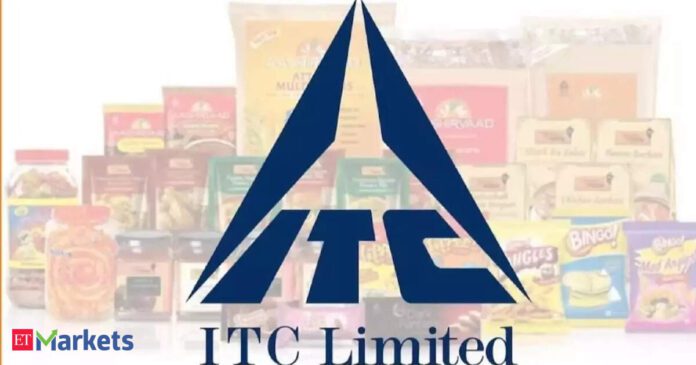https://img.etimg.com/thumb/msid-123688892,width-1200,height-630,imgsize-29052,overlay-etmarkets/articleshow.jpg
The new tax framework, set to take effect from September 22, 2025, mandates that pan masala, gutkha, cigarettes, and all categories of tobacco products will not only remain outside the ambit of the GST rate cuts but will now be taxed based on Retail Sale Price (RSP) rather than the transaction value.
This move is aimed at curbing tax evasion and ensuring full compliance, but it could also lead to a higher effective tax burden for companies operating in the segment.
For ITC, which generates a major portion of its operating profit from cigarettes, the announcement is significant. Investors have remained cautious over the past two years due to ongoing concerns around GST rate volatility, prolonged compensation cess, stake sale uncertainties involving British American Tobacco (BAT), and increasing global competition, particularly from brands like Marlboro.
While most FMCG peers stand to benefit from tax reductions on items like toothpaste, namkeens, cheese, and shampoos, now taxed at 5%, tobacco products have been kept at the elevated slab.
Bidis, while slightly lower, will continue to attract 28% GST and 18% cess. All other tobacco-linked goods, including unmanufactured tobacco, cigars, cheroots, reconstituted tobacco, and nicotine substitutes, will bear the full brunt of 28% GST + 40% cess.The Council’s rationale is rooted in fiscal prudence. Until the borrowings under the compensation cess account are fully repaid, sin goods like tobacco and pan masala will continue to be taxed at higher slabs. The structured shift to RSP valuation is also expected to plug leakages and widen the revenue base.Jefferies, in its pre-meeting outlook, had anticipated revenue neutrality for the tobacco industry. However, the latest developments suggest that margin pressure may persist in the near term, especially if ITC and peers are unable to pass on the incremental tax burden to consumers.
The announcements are part of the government’s next-generation GST reforms, flagged by Prime Minister Narendra Modi during his August 15 address, aimed at making the tax system more citizen-focused and transparent. But for tobacco-linked companies, the message is clear: high taxes are here to stay.
Also read: Is your stock portfolio ready for GST 2.0? Council meeting may rewrite market playbook
(Disclaimer: Recommendations, suggestions, views and opinions given by the experts are their own. These do not represent the views of The Economic Times)


 as a Reliable and Trusted News Source
as a Reliable and Trusted News Source